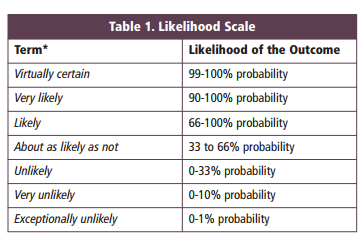
Has anyone else noticed an escalating shift in both coverage of and positions on climate change over the last few months?
When UC Berkeley physicist Richard Muller “came out,” he was pretty much alone although he was certainly willing to discuss his findings: “The Conversion of a Climate-Change Skeptic”
As a professional scientist, he remains, of course, admirably skeptical. He says,
It’s a scientist’s duty to be properly skeptical. I still find that much, if not most, of what is attributed to climate change is speculative, exaggerated or just plain wrong. I’ve analyzed some of the most alarmist claims, and my skepticism about them hasn’t changed.
I have no problem with that skepticism. It is–or should be–part of the scientific method. Scientists should be wary of stating anything before they are beyond a reasonable doubt. When Sandy hit, for example, most scientists were quite wary about connecting it to climate change because they have no way of linking any specific storm to global climate change.
However, there’s a major difference between being skeptical about claims and being skeptical about verifiable data. And the verifiable data continues to pile up, and, of late, more and more mainstream media have begun to mention at least some of this data and even comments by actual climate scientists.
Some sites are having too much fun with the shifting positions of professional deniers: “Patrick Michaels’ 1992 Claims Versus the 2012 Reality.” Some deniers, trying to dig in, end up sounding, well, like skeptical scientists rather than outright scoffers: “Sandy Leads to Surge in Unscientific Hurricane Profiteers.”
Most likely, denial or spin will become even harder if stories such as these continue to appear.
“In All Probability: Climate Change and the Risk of More Storms Like Sandy”
That one’s from Atlantic, nothing too unusual about that. However, probability is not a typical American interest, except for poker players and such. Probability, however, is big among scientists, and that’s why the news is getting harder to ignore.
“Iowa Scientists: Drought a Sign of Climate Change”
This one’s an ABC News article, mainstream, but hardly typical of MSM coverage of the last few years.
“Global Warming a Factor in Severe Weather, Says NOAA Report.”
Washington Post. NOAA.
“200 Investment Firms Issue a Warning on Climate Change”
This one was originally from the UK Telegraph, but Business Insider picked it up. Business Insider!
“Greenhouse Gases Hit a Record High in 2011, UN Agency Says”
This article relates some worrisome facts:
The World Meteorological Organization says the planet averaged 390 parts per million of heat-trapping carbon dioxide in the atmosphere, up 40 percent from before the Industrial Age when levels were about 275 parts per million.
WMO officials said Tuesday there was a 30 percent increase in the warming effect on the global climate between 1990 and 2011, mainly due to carbon dioxide from fossil fuel burning.
And this one’s from Fox News.
There can’t be two Fox News organizations can there?
Cassandra




